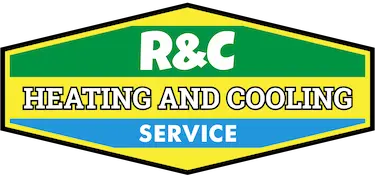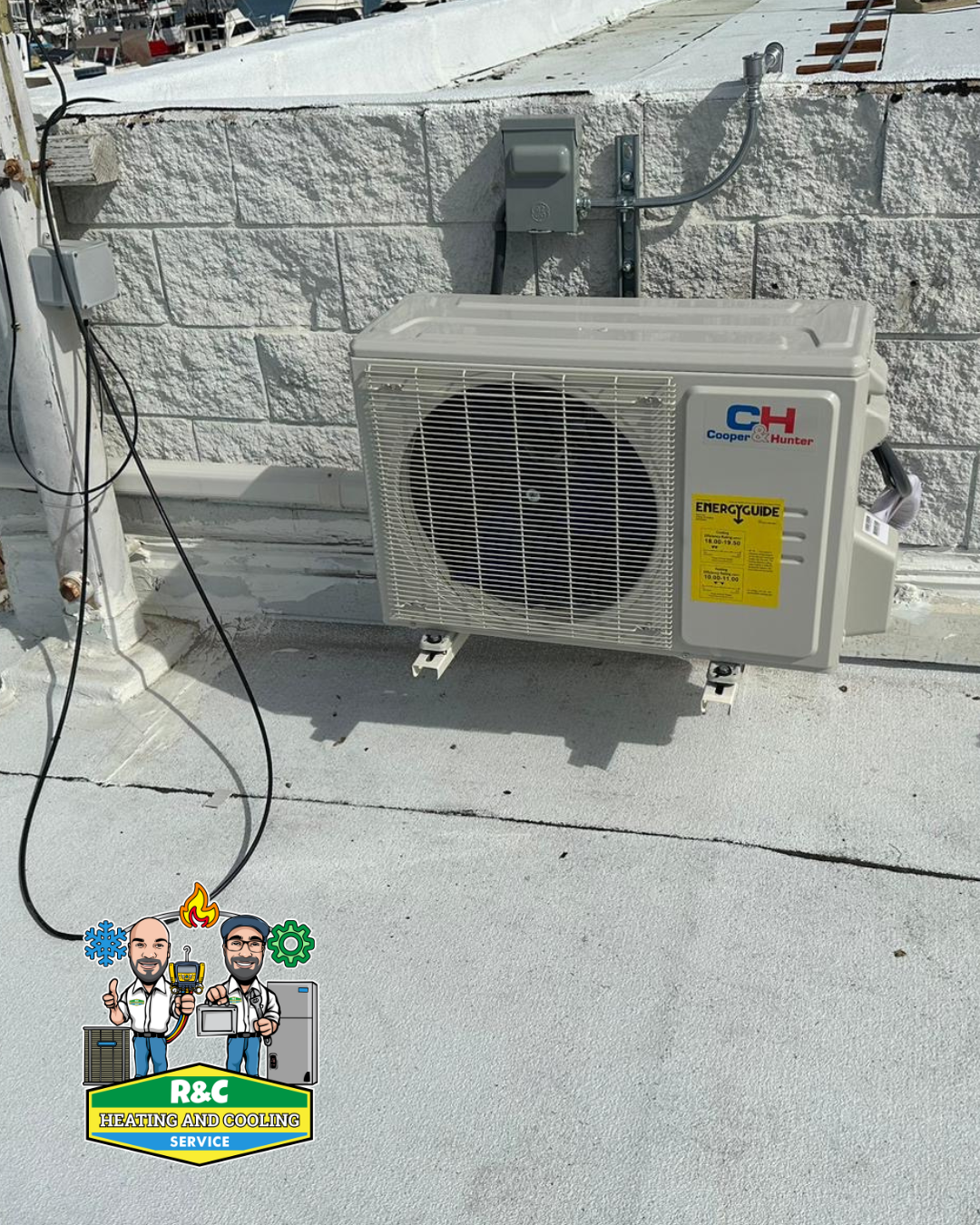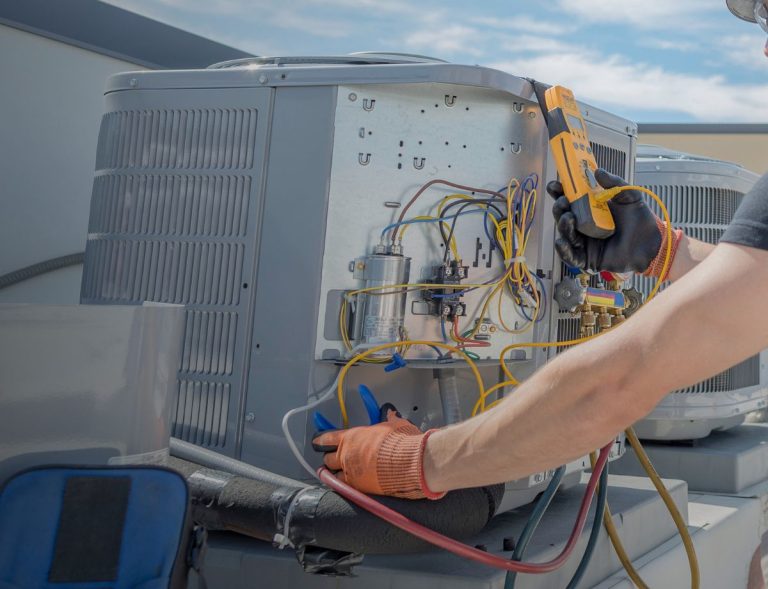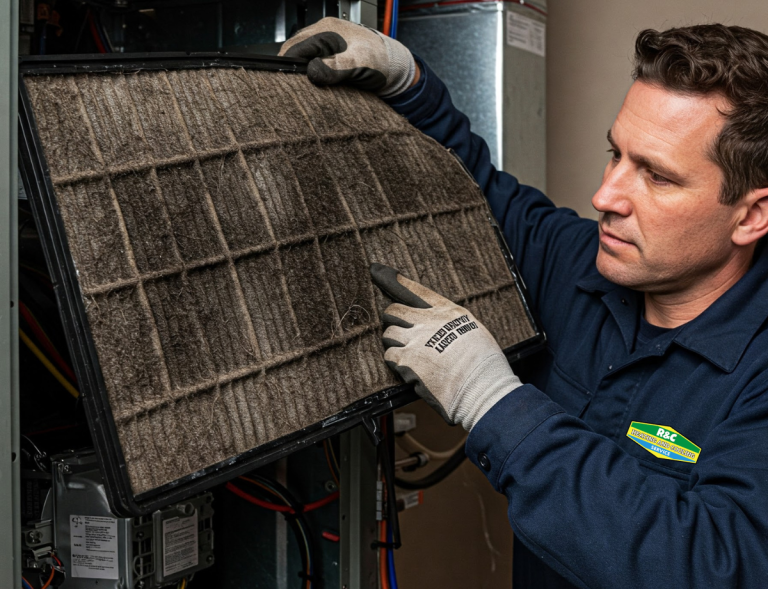Simple Essential AC Maintenance Checklist for Homeowners
Essential AC Maintenance Checklist for Homeowners
Is your air conditioning system struggling to keep your home cool? Many homeowners overlook essential AC maintenance, leading to higher energy bills and breakdowns. This checklist will highlight key tasks for effective upkeep, the advantages of regular maintenance, and signs that signal when it’s time to call a professional. By following these guidelines, readers will enhance their system’s performance, extend its lifespan, and avoid costly repairs. Engaging with this content will ensure your AC runs smoothly when it’s needed most, keeping your home comfortable year-round.
Comprehensive AC Maintenance Checklist for Homeowners
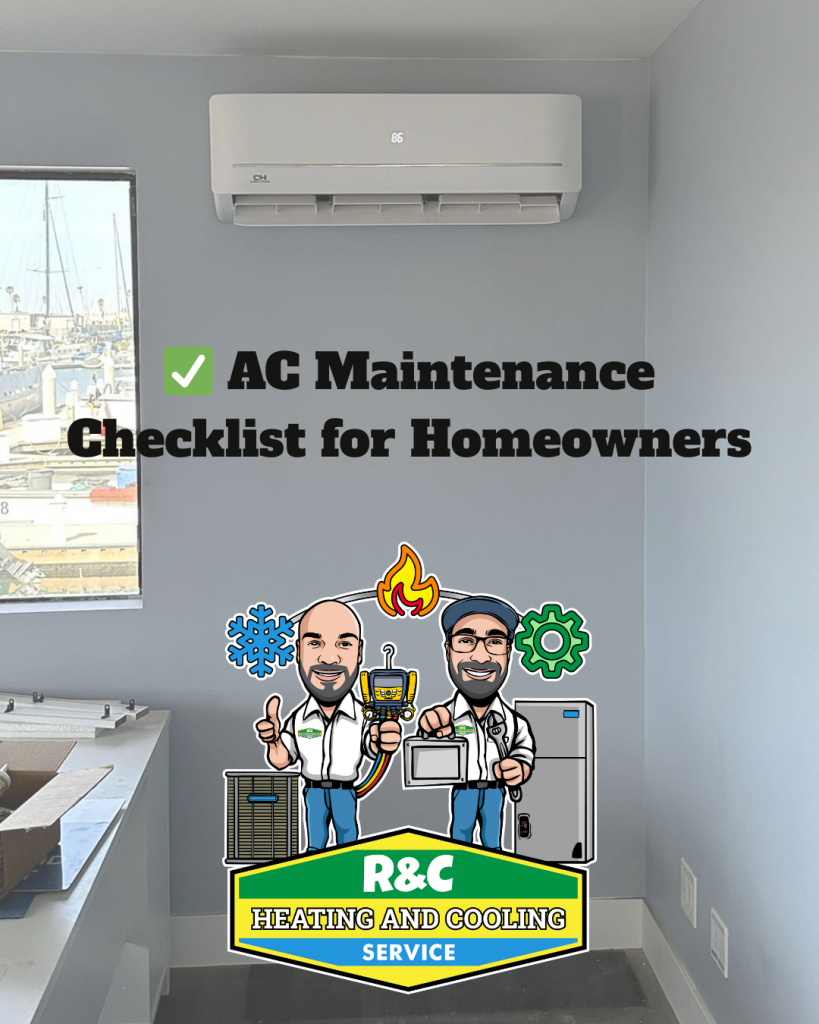
Regular air conditioning maintenance is vital for efficiency and longevity. Homeowners should prioritize changing air filters, testing and calibrating the thermostat, and checking electrical connections. Inspecting refrigerant lines, cleaning coils, ensuring level placement, and monitoring for frost buildup also play significant roles. Lastly, clearing the condensate drain line and assessing ductwork for leaks prevent humidity-related water damage. A final system check will ensure reliable performance throughout the cooling season.
Change the Air Filters Regularly
Changing the air filters regularly is a fundamental aspect of air conditioning maintenance that significantly impacts system performance. Filters clogged with dust restrict airflow, which can cause the thermostat to misread temperatures and lead to inefficiencies in both heating and cooling. By routinely replacing these filters, homeowners can ensure proper drainage of moisture, maintain optimal airflow, and enhance the overall longevity of their air conditioning unit.
Test and Calibrate the Thermostat
Testing and calibrating the thermostat is a crucial part of an effective AC maintenance checklist. Homeowners should regularly check that their thermostat is reading the temperature accurately, as debris or dust can disrupt its function. Using a cleaner and a garden hose, one can gently remove any buildup around the thermostat to enhance its performance, ensuring that it communicates effectively with the air conditioning system for optimal temperature control. This simple action not only improves energy efficiency but also extends the life of both the thermostat and the air filter.
Check and Tighten Electrical Connections
Checking and tightening electrical connections plays a key role in effective air conditioner maintenance. Loose connections can lead to increased resistance, which may affect the pressure within the system and hinder the overall efficiency of the air conditioning unit. Homeowners are encouraged to consult a professional HVAC technician to ensure all connections are secure, as this can prevent potential issues with coolant circulation and enhance the reliability of the entire system.
Inspect Refrigerant Lines for Damage
Inspecting refrigerant lines for damage is essential for maintaining the efficiency of an air conditioning system. A thorough inspection can reveal issues such as leaks, which can disrupt airflow and affect the overall performance of the condenser. By addressing these concerns promptly, homeowners can enhance energy conservation, ensuring their AC unit operates efficiently and effectively throughout the warmer months.
Clean the Evaporator and Condenser Coils
Cleaning the evaporator and condenser coils is crucial for maintaining an air conditioning system’s efficiency. Over time, dirt and algae can accumulate on these coils, obstructing airflow and reducing the unit’s ability to cool effectively. Regular cleaning not only helps avoid potential leaks in the refrigerant lines but also ensures that a programmable thermostat can more accurately control indoor temperatures, promoting optimal comfort within the home.
Ensure the AC Unit Is Properly Level
Ensuring that the AC unit is properly level is a critical aspect of maintenance that can significantly affect performance. An uneven air handler can lead to improper drainage of the drain line, which might cause water to pool or even damage the evaporator. Over time, this misalignment can lead to unnecessary wear and tear on the system, resulting in costly ac repair and reduced efficiency. Regularly checking the level of the unit helps prevent these issues, ensuring optimal airflow and comfort in the home.
Monitor Cooling Coils for Frost or Ice Buildup
Monitoring cooling coils for frost or ice buildup is a vital task for homeowners aiming to maintain their air conditioning systems effectively. If ice accumulates on the coils, it can hinder the system’s ability to remove heat, leading to increased wear and potential breakdowns. Regularly inspecting the coils and using a vacuum cleaner to remove any dust or debris helps ensure proper drainage and airflow, allowing the AC unit to operate efficiently and extending its lifespan.
Clear the Condensate Drain Line
Clearing the condensate drain line is a critical step in an AC maintenance checklist that homeowners should not overlook. A blocked drain can cause water to back up into the system, leading to compressor damage and increased humidity levels, which can negatively impact indoor air quality. By regularly removing any buildup or debris from the drain line, homeowners can ensure reliable airflow and prevent potential issues related to air pollution inside the home, while also maintaining the efficiency of the air conditioning unit.
Assess Ductwork for Air Leaks
Assessing ductwork for air leaks is a critical step in maintaining an efficient air conditioning system. Leaks can lead to improper airflow, making the system work harder, which increases energy costs and reduces comfort levels in the home. Homeowners are encouraged to consult with a professional air conditioning technician to perform a thorough inspection, as they have the expertise to identify issues such as mold or excessive dust buildup and can recommend necessary repairs or sealing methods that enhance overall system performance.
Perform a Final System Check
Performing a final system check is essential to ensure the air conditioning unit operates efficiently before the peak cooling season begins. During this assessment, homeowners should confirm that all components, such as the thermostat and electrical connections, are functioning properly and that there are no unusual noises or odors emanating from the unit. This proactive approach can prevent costly repairs and provide peace of mind, knowing that the system is ready to deliver reliable cooling when needed most.
Benefits of Routine AC Maintenance for Homeowners

Routine AC maintenance offers numerous advantages for homeowners. It significantly improves energy efficiency and overall performance, ensuring the unit operates optimally. Regular upkeep extends the lifespan of the air conditioning system while preventing costly repairs and unexpected breakdowns. Additionally, it enhances indoor air quality and maintains optimal comfort levels throughout the home. Each of these benefits demonstrates the importance of consistent maintenance practices.
Improve Energy Efficiency and Performance
Routine AC maintenance enhances energy efficiency and performance by ensuring that all components function optimally. For instance, regularly changing air filters and cleaning coils can significantly reduce energy consumption by allowing the system to operate without unnecessary strain. When an air conditioning unit runs efficiently, it not only cools the home effectively but also limits energy costs, providing homeowners with a practical solution to managing expenses while ensuring comfort during hot months.
Extend the Lifespan of Your AC Unit
Routine maintenance plays a significant role in extending the lifespan of an air conditioning unit. By conducting regular checks, such as changing filters and cleaning coils, homeowners can prevent buildup that often leads to system strain. This proactive approach not only enhances performance but also reduces the likelihood of costly repairs, resulting in a longer-lasting and more reliable AC system.
Prevent Costly Repairs and Breakdowns
Preventing costly repairs and breakdowns hinges on routine air conditioning maintenance. Regular tasks, such as changing filters and inspecting components, help identify potential issues before they escalate, saving homeowners from unexpected expenses. By committing to a maintenance schedule, homeowners ensure their AC system operates smoothly, enhancing reliability and comfort while minimizing the likelihood of significant repair costs.
Enhance Indoor Air Quality
Enhancing indoor air quality is a significant benefit of routine AC maintenance for homeowners. Regularly replacing air filters and cleaning coils helps reduce dust, allergens, and pollutants in the home environment. By maintaining an efficient air conditioning system, homeowners can enjoy cleaner air, which contributes to overall health and comfort, particularly for those with respiratory issues or allergies.
Maintain Optimal Comfort Levels
Maintaining optimal comfort levels within the home is a crucial benefit of routine air conditioning maintenance. Homeowners who prioritize regular checks, such as cleaning coils and adjusting thermostat settings, can enjoy consistent indoor temperatures, avoiding the discomfort of hot or cold spots. An efficiently functioning AC system not only enhances the living environment but also ensures that occupants remain comfortable regardless of external weather conditions, leading to improved overall well-being.
When to Schedule Professional AC Maintenance
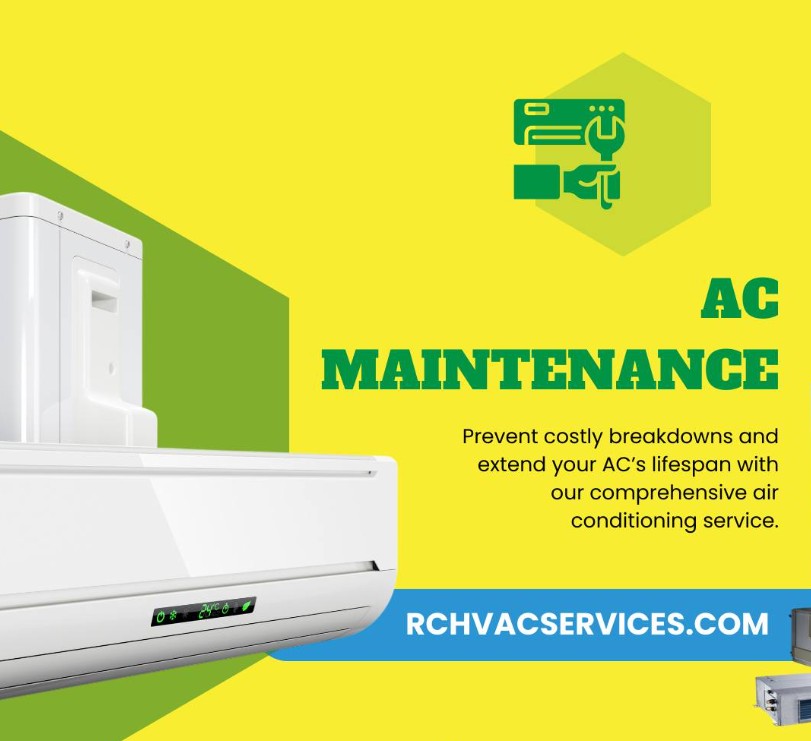
Homeowners should consider seasonal factors when scheduling professional AC maintenance, ensuring systems are prepped for high-demand periods. Signs such as unusual noises or fluctuating temperatures indicate the need for expert service. Regular maintenance every six months is generally advisable, emphasizing the significance of selecting qualified technicians for optimal results. These factors play a crucial role in maintaining efficient and reliable air conditioning systems.
Seasonal Considerations for Maintenance
Seasonal considerations for air conditioning maintenance are critical for ensuring efficiency and reliability. Homeowners should aim to schedule professional service in spring before the rising temperatures demand increased cooling. During this time, technicians can thoroughly inspect systems, ensuring all components function optimally to prevent breakdowns during peak usage in summer. Regular maintenance during autumn also prepares units for the colder months, safeguarding against issues caused by fluctuations in temperature and moisture levels.
Signs That Indicate Professional Service Is Needed
Homeowners should be vigilant for certain signs that indicate the need for professional AC maintenance. Unusual noises, such as grinding or hissing, can signal mechanical issues or refrigerant leaks that require immediate attention. Additionally, if there are fluctuations in temperature or increased energy bills, these may point to an inefficient system needing expert service to restore optimal performance.
Frequency Recommendations for Homeowners
Homeowners should schedule professional AC maintenance at least twice a year, ideally in the spring and fall. This frequency allows for thorough inspections before heavy use during the summer, ensuring optimal performance and preventing potential breakdowns. Additionally, addressing maintenance needs promptly can reduce energy costs and enhance system longevity, making it a proactive approach for maintaining comfort within the home.
Importance of Choosing Qualified Technicians
Choosing qualified technicians for air conditioning maintenance is essential for ensuring that systems operate effectively and safely. Experienced professionals possess the knowledge and skills to identify potential issues, perform thorough inspections, and deliver solutions tailored to the specific needs of each unit. By opting for certified technicians, homeowners can rest assured that the work performed meets industry standards, ultimately enhancing the reliability and longevity of their air conditioning systems.
DIY Maintenance Tasks for Homeowners
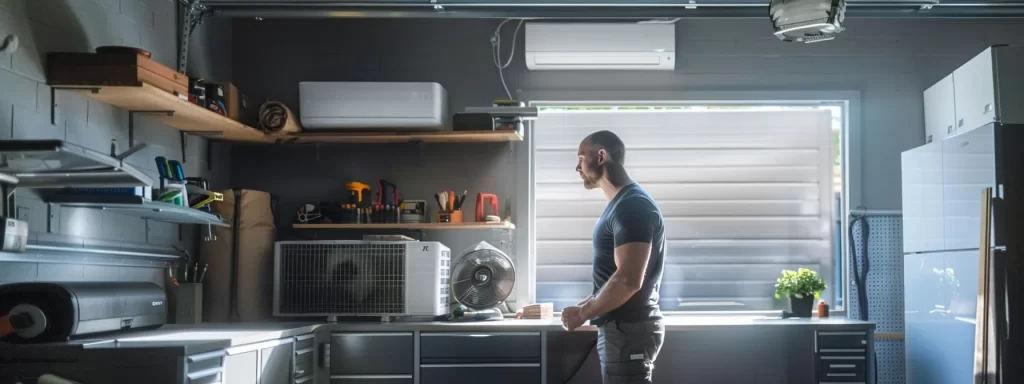
Homeowners can effectively manage several routine tasks to maintain their air conditioning system. This section covers essential DIY maintenance tasks, including safety precautions to take during these activities and the necessary tools for basic upkeep. Each topic provides practical insights, empowering homeowners to ensure their AC remains efficient and reliable throughout the year.
Routine Tasks You Can Handle Yourself
Homeowners can manage several routine tasks to maintain their air conditioning system effectively. Simple actions, such as changing air filters every one to three months, help promote optimal airflow and enhance energy efficiency. Additionally, regularly cleaning the outdoor condenser unit by removing debris, such as leaves and dirt, ensures it operates efficiently and prevents unnecessary wear.
Safety Precautions for DIY Maintenance
When performing DIY maintenance tasks on an air conditioning system, safety precautions are paramount to prevent accidents and ensure effective operation. Homeowners should always disconnect the power supply to the unit before beginning any work to avoid electrical shocks. Wearing proper safety gear, such as gloves and goggles, can protect against potential hazards while cleaning or servicing the system. Adhering to these safety measures allows homeowners to perform maintenance tasks confidently and effectively while ensuring the longevity of their air conditioning unit.
Necessary Tools for Basic Maintenance
Having the right tools for basic maintenance is essential for homeowners aiming to keep their air conditioning system in top condition. Basic tools such as a replacement filter, a vacuum cleaner or compressed air can help in cleaning coils, while a multimeter is valuable for checking electrical connections and ensuring proper functionality of the thermostat. Investing in these tools not only makes routine maintenance tasks more efficient but also empowers homeowners to address common issues proactively, ultimately leading to a more reliable and efficient AC system.
Common AC Issues and Their Solutions

Homeowners may encounter various air conditioning issues that require immediate attention. Troubleshooting unexpected noises can identify mechanical problems early, while addressing insufficient cooling problems ensures consistent indoor comfort. Resolving water leakage issues prevents damage and maintains air quality. Understanding warning signs of system failure equips homeowners with the knowledge to act swiftly, preserving the efficiency and longevity of their AC units.
Troubleshooting Unexpected Noises
Troubleshooting unexpected noises from an air conditioning unit is an essential skill for homeowners. Noises such as grinding, buzzing, or hissing may indicate mechanical issues or malfunctioning components. Engaging a qualified technician to investigate these sounds can help identify problems like loose parts or refrigerant leaks, ensuring that the AC operates efficiently and preventing further damage.
Addressing Insufficient Cooling Problems
Addressing insufficient cooling problems in an air conditioning system requires prompt action to ensure comfort and system efficiency. Homeowners should first check the air filter, as a clogged filter can significantly restrict airflow, leading to reduced cooling capacity. If the filter is clean, inspecting the thermostat settings for accuracy and ensuring that vents are unobstructed can help restore effective cooling performance. In cases where these steps do not resolve the issue, consulting a qualified HVAC technician may be necessary to diagnose potential problems such as refrigerant leaks or mechanical failures, ensuring the system operates as intended.
Resolving Water Leakage Issues
Resolving water leakage issues in an air conditioning system is crucial for preventing moisture damage and maintaining indoor air quality. Homeowners should first check the condensate drain line for clogs, as blocked drains often cause water to back up and leak. If the issue persists even after clearing the line, it may indicate problems with the evaporator coil or faulty seals, necessitating the expertise of a qualified technician to identify and rectify the underlying problem effectively.
Understanding Warning Signs of System Failure
Understanding the warning signs of air conditioning system failure is vital for homeowners aiming to maintain comfort and efficiency. Common indicators include unusual noises, fluctuating temperature settings, and increased energy bills, all suggesting that the system may not operate optimally. By recognizing these signs early, homeowners can seek professional assistance promptly, which often prevents more extensive damage and costly repairs, ensuring that their air conditioning unit functions reliably throughout the cooling season.
Resources for Homeowners on AC Maintenance

Homeowners seeking reliable information on air conditioning maintenance can benefit from multiple resources. Trusted online guides and tutorials offer step-by-step advice on routine upkeep. Recommended maintenance checklists serve as practical tools for tracking tasks, while local HVAC service providers and contacts can assist with professional needs. These resources ensure homeowners remain informed and proactive in maintaining their AC systems.
Trusted Online Guides and Tutorials
Homeowners seeking effective AC maintenance can find valuable information through trusted online guides and tutorials. These resources provide step-by-step instructions on routine tasks, such as filter changes and coil cleaning, ensuring that homeowners can follow along easily. By leveraging these online tools, individuals can enhance their understanding of essential maintenance practices and confidently manage their air conditioning systems for optimal performance.
Recommended Maintenance Checklists
Recommended maintenance checklists are invaluable resources for homeowners aiming to keep their air conditioning systems running optimally. These checklists typically outline essential tasks such as changing air filters, cleaning coils, and inspecting ductwork, all of which contribute to enhanced performance and energy efficiency. By following a structured checklist, homeowners can systematically address each aspect of maintenance, preventing costly repairs and ensuring indoor comfort throughout the cooling season.
Local HVAC Service Providers and Contacts
Local HVAC service providers are essential resources for homeowners seeking expert assistance with air conditioning maintenance. These professionals bring extensive training and experience to diagnose issues, perform critical service tasks, and ensure that systems operate reliably. By establishing relationships with trusted technicians, homeowners can access timely support and expert advice, addressing maintenance needs proactively while enhancing the overall performance of their AC systems.
Conclusion
Prioritizing routine air conditioning maintenance is essential for homeowners who want to ensure efficiency and longevity of their HVAC systems. Regular tasks, including changing air filters, inspecting refrigerant lines, and clearing drain lines, prevent costly repairs while enhancing indoor air quality. By adhering to a comprehensive maintenance checklist, homeowners can enjoy reliable cooling and comfort during the warm months. Ultimately, proactive maintenance leads to improved energy efficiency and extends the lifespan of air conditioning units, making it a vital practice for every homeowner.
